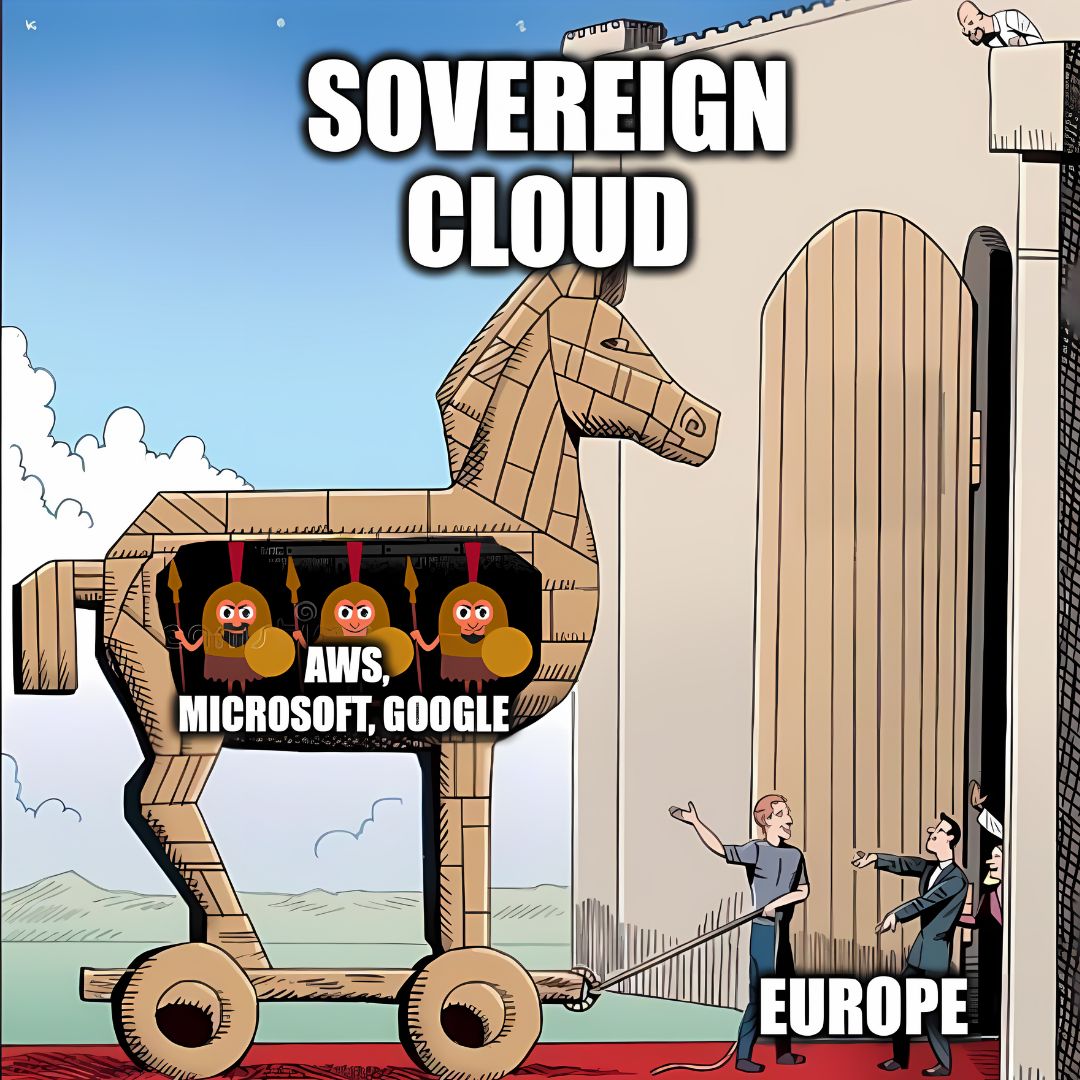The debate over digital sovereignty in Europe has shifted from being a technical issue to a strategic priority. Recent estimates show that 72% of European organizations see control over their data as a key objective. However, more than 70% still rely on major U.S. providers—referred to as hyperscalers—such as AWS, Microsoft, or Google, to host and manage their information.
This dependence presents obvious legal and strategic risks. One frequently cited risk is the US CLOUD Act, a law that allows U.S. authorities to access data managed by companies in the United States, even when that data is physically stored in data centers located in Europe.
Microsoft and AWS: Promises and Limitations
Microsoft has publicly acknowledged that its cloud cannot guarantee full sovereignty under U.S. legislation. Meanwhile, AWS announced the launch of a “European Sovereign Cloud,” which promises to operate exclusively under the control of personnel and entities within the European Union. Nonetheless, the question remains: do organizations truly own their digital infrastructure, or are they renting it across the Atlantic?
European Alternatives: From Policy to Action
While projects like Eurostack and legislative initiatives within the EU work toward building a sovereign foundation in the long term, existing solutions enable companies and public administrations to advance toward technological independence. One notable example is Nextcloud Enterprise, a collaboration and cloud storage platform that aligns with digital sovereignty principles by offering:
- 100% hosting within the EU or self-managed by the organization itself.
- Transparent, open-source architecture, with no backdoors or hidden dependencies.
- Public sector trust, with deployments in governments, universities, and European organizations.
- No exposure to extraterritorial U.S. laws, as it does not rely on providers subject to outside jurisdictions.
A Cultural and Strategic Shift
Digital sovereignty is not just about where data is stored but also who controls the infrastructure, software, and access keys. For many experts, true technological independence begins with system ownership, not outsourcing to third parties.
Europe’s challenge is both legislative and corporate: to invest in its own infrastructure, promote the use of free software, and ensure that technological decisions do not undermine the continent’s strategic autonomy.
Frequently Asked Questions (FAQ)
What is the US CLOUD Act and how does it affect European companies?
It is a U.S. law that mandates U.S.-based companies to provide data to authorities, even when that data is stored on servers outside the country.What advantages does Nextcloud offer over major cloud providers?
It provides complete control over infrastructure, the option for on-premises or EU-based hosting, and an open-source architecture, thereby eliminating risks associated with extraterritorial legal jurisdictions.What role do initiatives like Eurostack play in digital sovereignty?
They aim to develop a European cloud infrastructure with their own standards and political and technical control within the EU, reducing dependence on external providers.Is digital sovereignty only relevant for public administrations?
No. It also benefits SMEs and large companies by protecting their intellectual property, complying with privacy regulations, and enhancing their technological resilience.
via: LinkedIn

